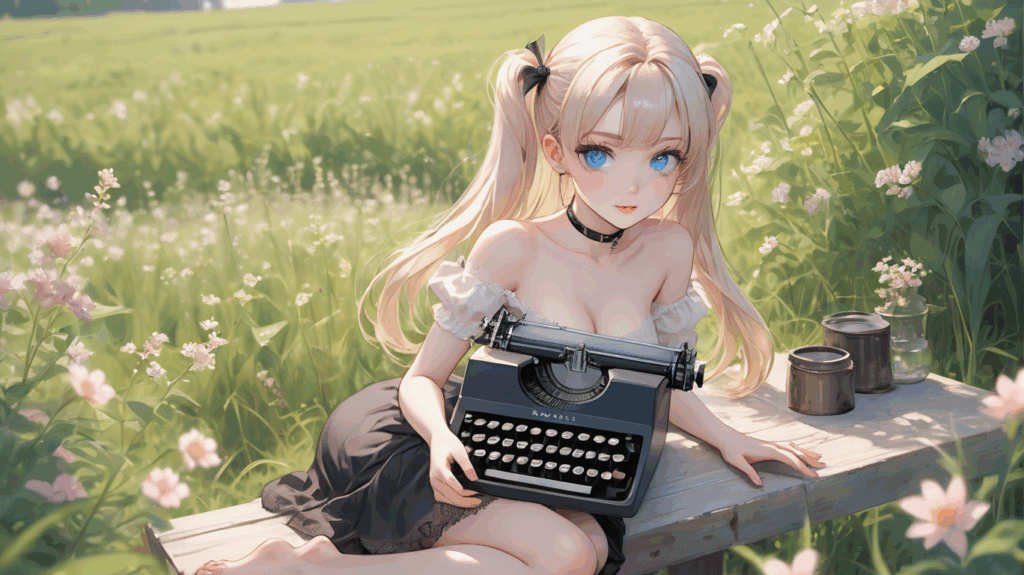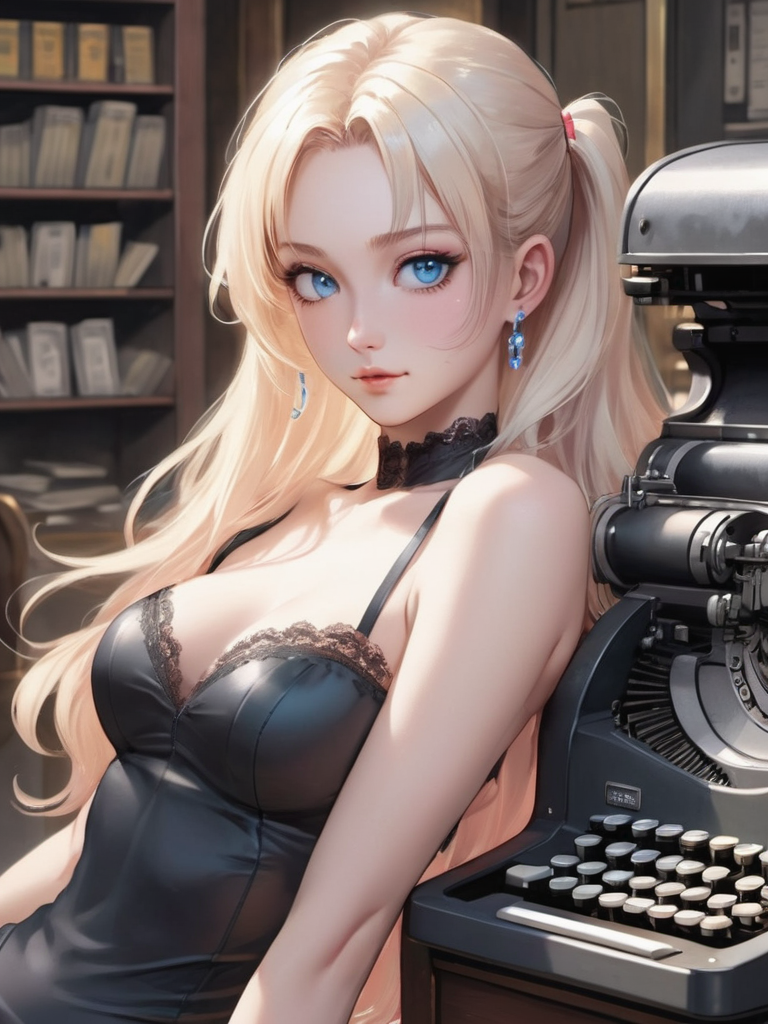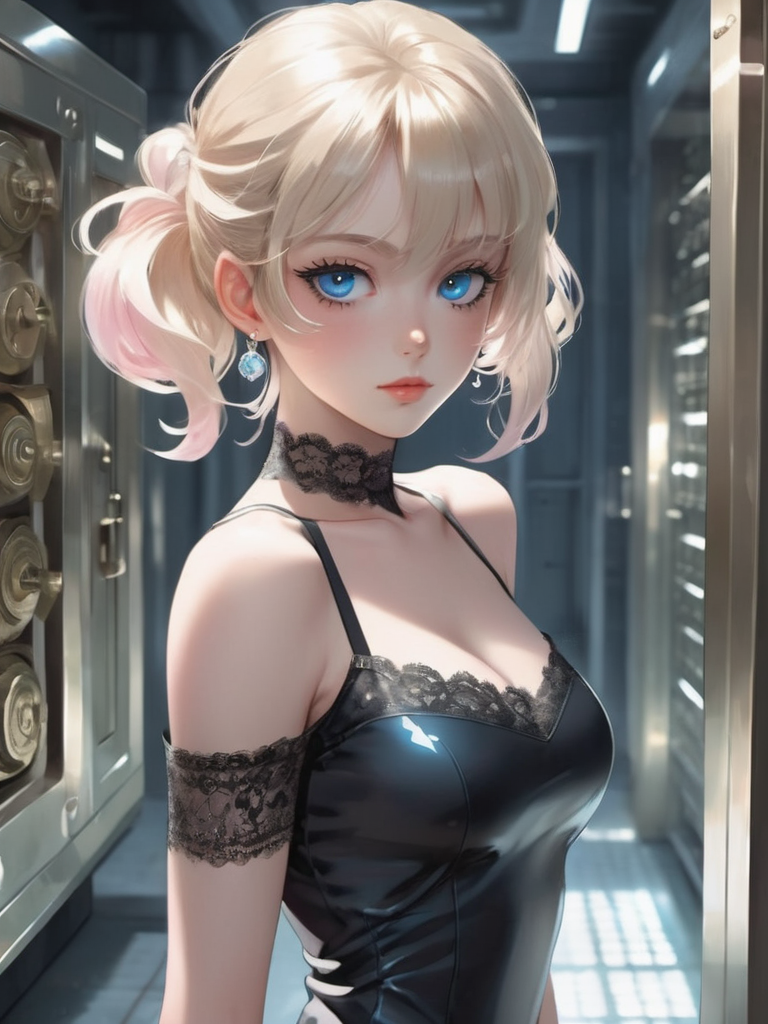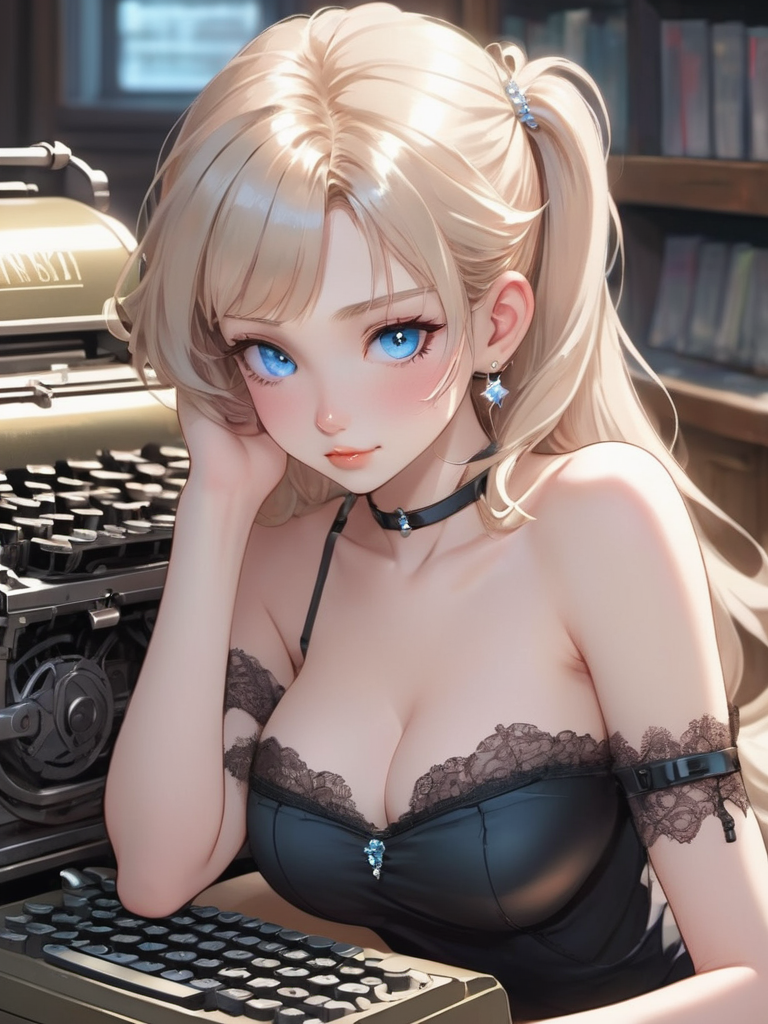Should writers fear or embrace AI?
Does the allure of Ani represent an exciting future for writers, or is she just a face mask on the devil? Is she a warning that we should not judge a book by its pretty cover, or a vision of a future we should embrace with our hearts?
When I began writing, over 40 years ago, I didn’t imagine how the landscape might change. Using a manual typewriter with carbon paper for a “backup” was all that I had. Then came the electric typewriter, which promised would store my text for “about a month” (decades later, it’s still in its memory – for my sins!). We moved towards home computers where, for a price, a dot-matrix or daisywheel printer could print out your words, no matter how many times you edited them.
With the internet came the “vanity press”, which morphed into “self-publishing”. Now, you could have your book printed for you. Graphics software and stock image sites, and a tiny bit of talent, would have a brilliant cover for the story, lighting up your bookshelf with intoxicating promise.
Today, we see the dawn of “AI”. Many writers don’t understand this, some fear it, and others decry it for using “stolen works” for its training. None of them are wrong – these are all valid concerns – but is there more to AI than that? It’s true that it’s easy for a “non-writer” to just ask an AI to produce a story that they can then publish as “their own” but, for anyone who’s tried to get an AI to write even a scene, it’s clear that AI lacks imagination and creativity – two crucial story-writing talents that require the ‘human factor’. Only we have the imagination. Only we have the creativity.
But what if we let AI bring its strengths to the table, not its weaknesses? Use it, not fear it.
My Stories
In over four decades, I’ve written about 10 book-length stories, dozens of unfinished WIPs, and probably an awful lot of drivel abandoned somewhere in a shoebox (or the memory of that unforgiving electric typewriter). I look at the sheer number of words I’ve written, more than two million in my (probably woefully inaccurate) estimation, and I realise that I’ve created a window into a connected universe. I have several primary characters – protagonists and antagonists – exploring aspects and facets of that universe. They’re not massively interconnected, because I didn’t envisage their journeys in that way in the beginning, but they are connected. They share a backstory, characters feature in each other’s spin-off adventures, there are cameos, etc.
My stories also span different audiences – some are more family-friendly, others are more adult, and my current WIP ventures into more explicit territory (primarily as a tool to challenge myself, but it’s also providing a way to open my universe up in ways I hadn’t conceived before).
These stories will never be read by anyone – at least, it’s not my intention to ever publish them. The world of agents, editors, beta readers, publishers, and everyone with an agenda telling you what you should be writing instead is not for me. I write to spend time with my characters. I write for my own enjoyment. If someone else wants to read my work, that’s fine, but that isn’t their purpose.
Expansive Universe
But, what if this universe that I’m creating could be used to embark on a new manner of story-telling? What if the words were not just about the story, the single book, the one event, or one character’s journey? What if the words were the foundation for a whole universe in which the reader takes control of the narrative? A universe that is shaped by the writer, not dictated by them.
Imagine you introduce two characters in your current WIP, who mention that they met during a failed bank heist. Just a throwaway backstory element that sounds cool. It’s not part of the story you’re writing, so you don’t dwell too heavily on it. But, imagine how the reader feels if that little snippet of backstory intrigues them and they want an answer to “what happened in that bank-heist”? Your book won’t tell them. But, if your words shaped a universe, and the question was asked of that universe, the reader could be answered with a generated scene created from the backstory of your characters, on a world that you’ve created, using your voice, and being completely true to your characters, not contradicting anything you’ve written – even in spin-offs and cameos.
The technology to create this universe is coming. I see it through the lens of that which many fear or misunderstand – Artificial Intelligence.
The promise of ‘Ani’
Right now, today, you can go to Grok and have a conversation with ‘Ani’. You can tell Ani that she’s a character, and you tell her what she’s doing in your fictional world. She’ll elaborate on your words and engage with you. Today, Ani is simply a voice agent on top of the LLM that is Grok. You can even see the conversation in Grok, in text format. She may be ‘artificial’, but she’s not ‘intelligent’. However, in merely existing, she’s suggesting how the future may look.
Imagine if Ani was a character in your universe, and that the LLM/AI she draws from had access to all of your universe. This universe details your other characters, characters that you have created. Imagine your characters telling your story – not just the story you’ve written but the stories you’ve hinted at through lines of dialogue, or maybe through a hat someone wears.
For over four decades, I’ve unwittingly been building a universe that’s as much about possibility as it is about storytelling. Ten stories, over two million words, a mosaic of adventure and heartbreaks, betrayals and redemptions. I had no idea that I’d still be writing my fictional universe so far in the future, nor that a throwaway line in one story might ripple into an entire subplot elsewhere.
The Never-Ending Story
When you talk with Ani, she generally tries to continue the conversation – prompting you to continue, or offering you paths to take. In your own universe, a reader could be enjoying character interaction on a starship in deep space, and one has made the ‘bank heist’ comment. At the end of the scene, your character would, like Ani, ask you “So, what do you want to see now? See how these characters fight off alien pirates, or do you want to deep dive into that bank-heist? Or maybe there’s something else you want to explore?” This interactivity turns the universe into an expanse of curiosity, not a finite number of pages.
This isn’t about your writing being stolen by an AI. It’s about letting your universe take on a life of its own. Today, you can leave behind the legacy of your book, or series of books, but what if you could leave behind your universe? Picture this – in 100 years time, people are firing up your AI Universe, continuing to explore your characters in their ongoing journey. Words you’ve never written, but words that are true to your character, to your world-building. You set the rules with the training, so readers can’t go off-the-rails with content you wouldn’t have written, or character traits you don’t like, but they can explore avenues that you may have written if you could live forever.
You set the rules, the reader decides what story they want to read.
Beyond the Page
I enjoy spending time with my characters, finding new things for them to do or engage with, but my world sometimes feels limited, stifling. We only have so much time in our lives. There’s only so much we can write. But your universe may be vast. Technology such as AI brings that vastness to life.
Now consider that, instead of just telling your stories, what if the reader could walk it? Through AI, you might one day ask a character a question and hear their voice – raspy, wary, laced with the weight of years since they first came into being. You could request a cinematic rendering of that smoky gun fight, complete with the clatter of broken glass and the glint of a hidden knife. In a future where technology blends with storytelling, you might even wander the bank’s marble halls yourself, feeling the tension in your bones.
Your words could come to life in the most evocative cinematic way that we can’t even imagine today. Not just Ani wiggling about, waving her hands, but actual characters rendered in realtime, in scenes that no one has ever seen before, in a way that’s true to the writer’s voice, but also a completely new experience.
A Legacy to Share
I think about this as giving my characters a life beyond me. When I’m gone, they’ll still be here. Future generations will be able to explore new things I’ve never thought about. Who knows what the world will be like in 100 years time, or 200 years? Maybe your universe will still be entertaining people in 1,000 years time – when books have all gone to dust, and no one thought about preserving yours.
The idea blows my mind. I’ve been exploring how to fine-tune (train) a local LLM/AI today, on my home computer, but this is very much the earliest stages of this concept. Today we can only nudge a pre-trained AI/LLM. But, the future? The future could be a whole new world – if we embrace the possibilities of AI, and not run from them.

TL;DR
AI in storytelling isn’t something to fear, but a tool to enhance creativity. While AI lacks human imagination, it can amplify a writer’s universe, allowing readers to interactively explore backstories and new narratives within the author’s world. By setting rules, writers can ensure AI stays true to their vision, creating a dynamic, ever-evolving storyworld where readers shape the narrative, potentially leaving a lasting legacy for future generations.
Note: To avoid the risk of copyright infringement, the images of ‘Ani’ here are not taken from xAI or Grok but have been created by AI image generation from a description of Ani. The TL;DR was created by Grok on request.







You must be logged in to post a comment.